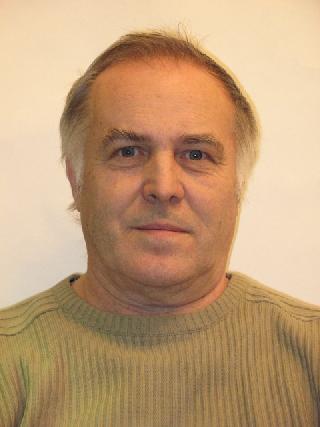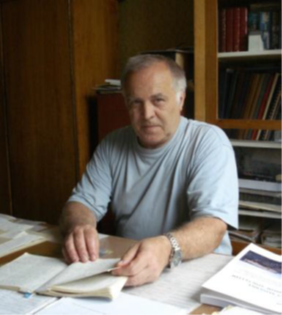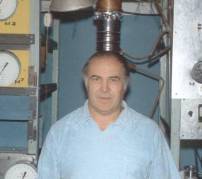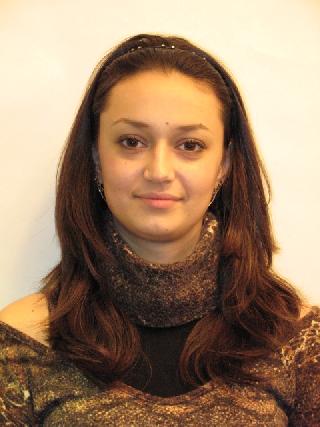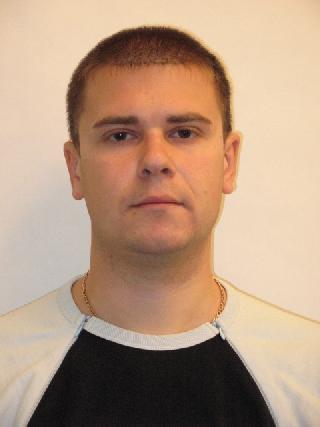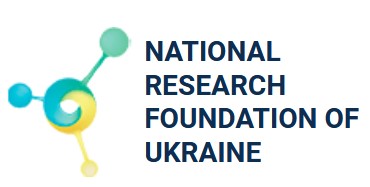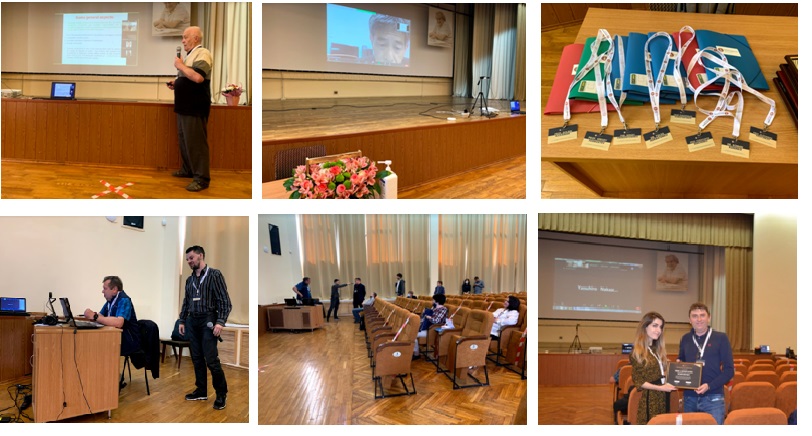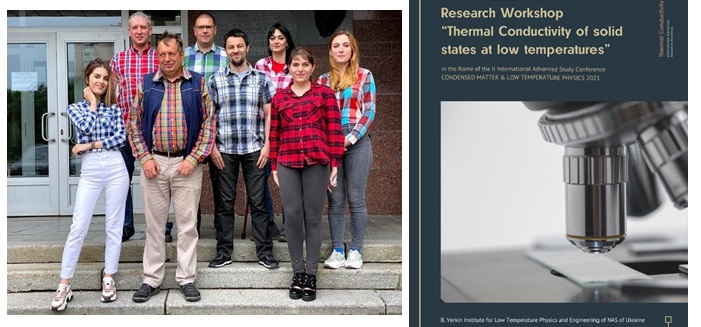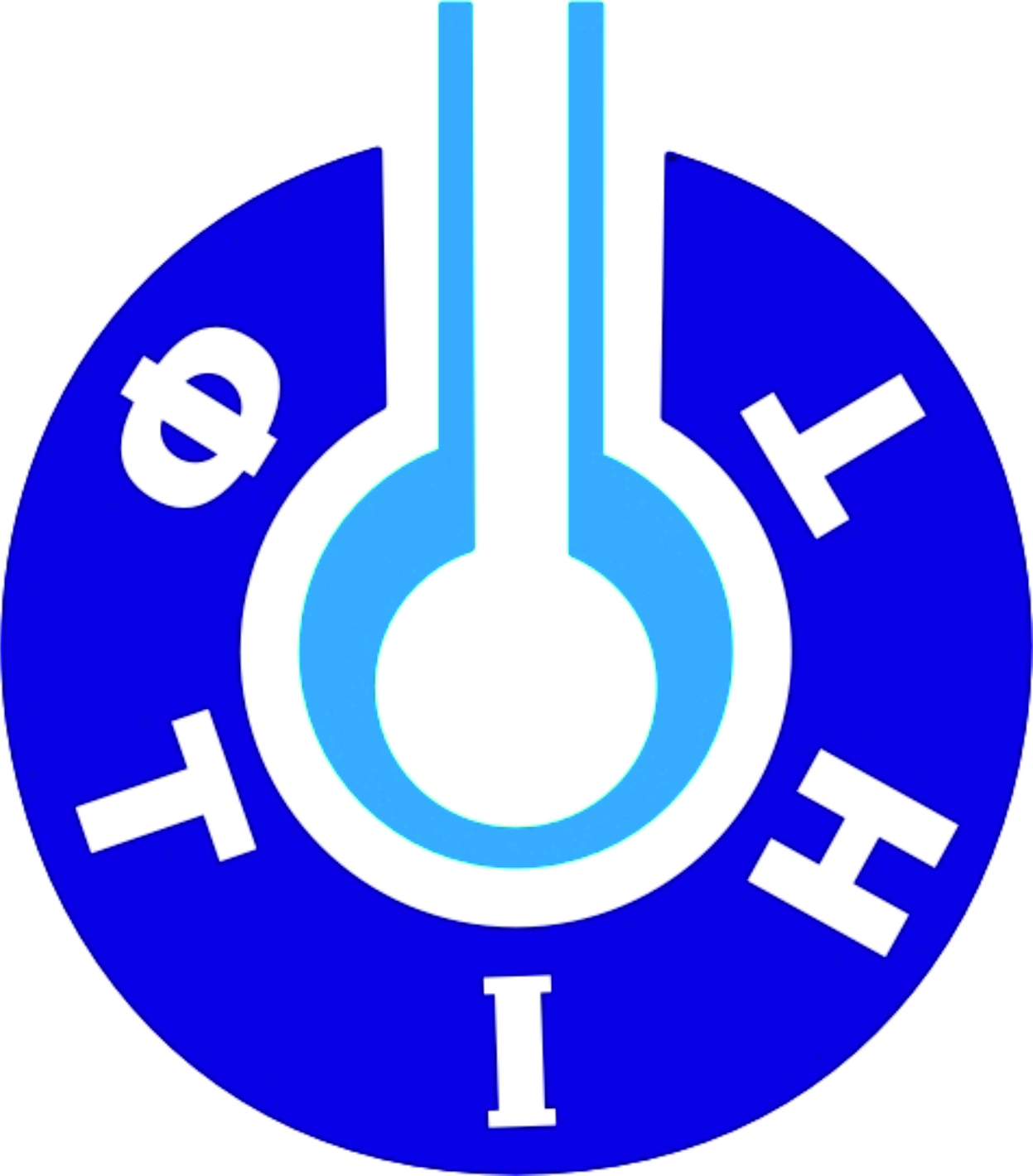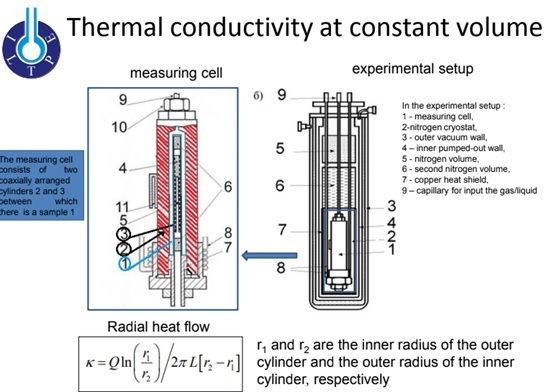
Experimental methods for investigating Isochoric thermal conductivity on unique experimental setup
in the B. Verkin ILTPE of NASU allows precision measurements of the Isochoric thermal conductivity.
Schematic of the low-temperature section of the setup for measuring the thermal conductivity
is shown in Fig. above. Isochoric thermal conductivity of solid with different densities are measured
by a stationary method on a coaxial geometry device [Instr. Exp. Tech. 42, 133 (1999)].
Using a high-pressure cell, it is possible to grow a solid sample of sufficient density for
inert gases and other gas or liquid materials. The measuring beryllium bronze cell allow maximum
permissible pressure near 800 MPa.
The study of thermal properties and heat transfer mechanisms in molecular
substances with complex crystal structures is an important area of materials science,
which is necessary for development astronautics, modern energy - saving technologies
and many applied technical problems, such as the creation of new thermal insulation and
thermoelectric materials. Reserchers of group focus on experimental investigation of
isochoric thermal conductivity
in crystalline molecular compounds
of varying densities over a wide temperature range, including both orientationally
ordered and
"plastic" orientationally disordered phases. Dr. Sagan engaged in development of novel
modified graphene-based nanosystems and nanocomposites, and study of
their thermodynamic properties under extreme low - temperature conditions.
.
Dr. Konstantinov V.A. is the author and co-author of Reviews:
- 1. V. A. Konstantinov, V. G. Manzhelii, Phonon scattering and heat transfer in simple molecular
crystals, In Book: Lectures from the Winter School of Theor. Phys., 1993 Wroclaw, Poland,
Plenum Press, New York and London, P. 321-333 (1994).
- 2. V. A. Konstantinov, Heat Transfer in Molecular Crystals, In Book: Heat Transfer -
Theoretical Analysis, Experimental Investigations and Industrial Systems, Aziz Belmiloudi
(Ed.), “InTech" Open Access Publisher, P.157-188 (2011).
Enhancing thermal transport in ABS polymer with graphene oxide: Insights
into low-temperature thermal conductivity behavior and correlation with
Boson peak anomaly
The study "Enhancing thermal transport in ABS polymer with graphene oxide: Insights
into low - temperature thermal conductivity behavior and correlation with
Boson peak anomaly" was supported by the
National Research Foundation of Ukraine (Grant No.197/02.2020).
In this study, the thermal conductivity of pure ABS polymer and ABS polymer
composite with 0.5 wt% of trGO was measured in a temperature range from 2 to 100 K (see Fig. below)
[Thermochimica Acta, 733, 179696 (2024)].
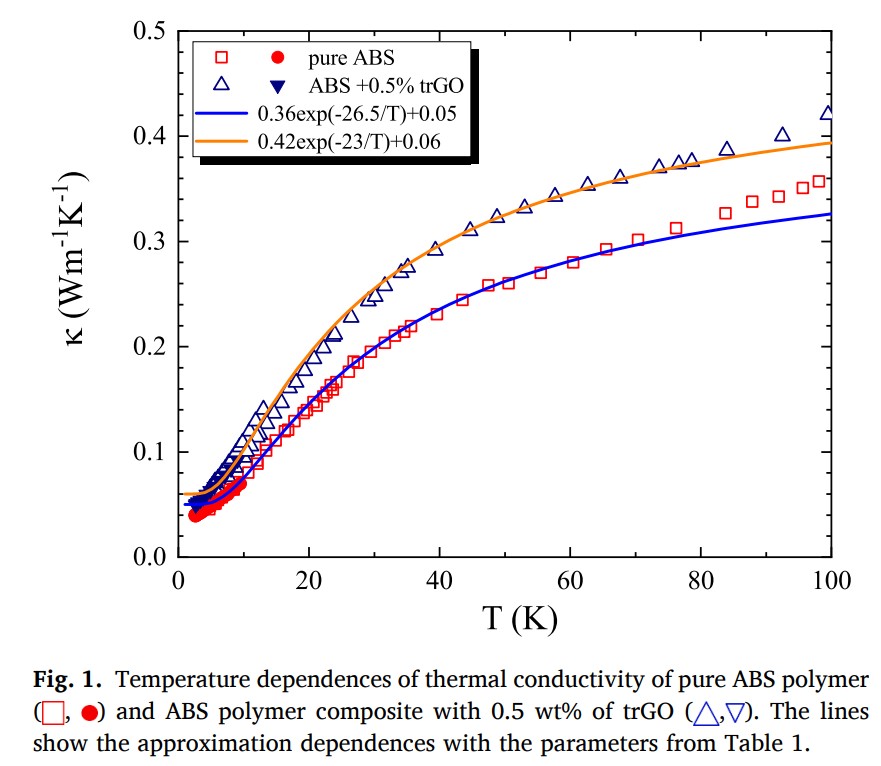

The thermal conductivity of both samples increases
sharply at low temperatures, then growth slows down between 30 and
100 K. Adding 0.5 % trGO enhanced the thermal conductivity of ABS
polymer by 1.5 times over the entire temperature range. The experimentally observed
thermal conductivity can be well described by an
Arrhenius-type exponential function with a characteristic energy E and a
pre-exponential factor κ0, and a constant term κpl, most likely related to
the lower limit of thermal conductivity (see Table 1.).
Additionally, a comparison with literature data of epoxy-resin and
structural glass SiO2 was made. Moreover, it was observed, that the
value of E correlates with the magnitude of the temperature of the boson
peak manifestation Tmax. Thus, this study provides new physical information
about thermal conductivity in disordered materials and indicates
the universality of temperature dependence [Thermochimica Acta, 733, 179696 (2024)].
The reserchers of group have active scientific cooperation and projects with the researchers from
Institute of Low Temperature and Structure Research PAS (Wroclaw, Poland).
Dr Sagan V.V have the awards of the Cabinet of Ministers of Ukraine Scholarship for Young
Scientists (2008 – 2010); Winner of the 3rd Regional Competition "Best Young Scientist of
Kharkiv Region" (2008) and Presidential Scholarship of Ukraine for Young Scientists
(2011 – 2013).
The study "The low limit of thermal conductivity in multicomponent solutions of rare gas solids"
of authors V.A. Konstantinov, A.V. Karachevtseva, V.P. Revyakin, V.V. Sagan was awarded in the 2020
on the Final scientific conference of the B.I. Verkin Institute of Low Temperature Physics
and Engineering, NAS of Ukraine in section of the Scientific Council
"Molecular Physics, Physics of Cryogenic Liquids and Crystals".
Dr. Karachevtseva A.V. has scholarship of the President of Ukraine for Young Scientists (2016 - 2018).
